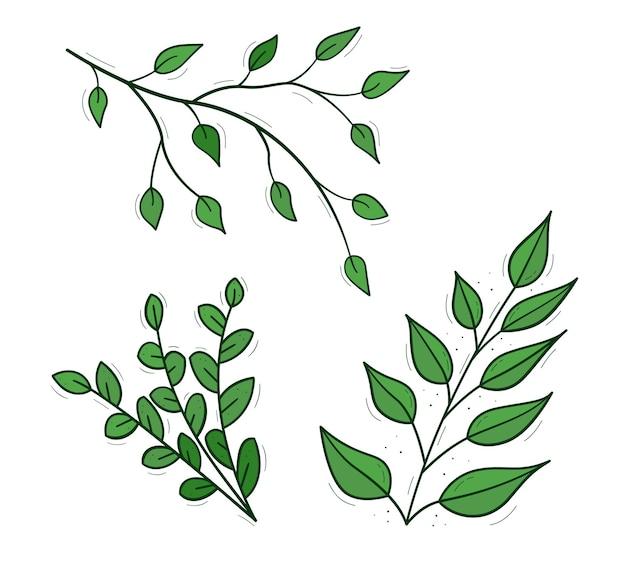Ethics is a subject that has fascinated humanity for centuries, exploring the principles that govern our moral choices and actions. Whether we realize it or not, ethics play a significant role in our everyday lives, shaping the way we behave towards others and the decisions we make. In this blog post, we will delve into the world of ethics, specifically focusing on the three branches of ethics.
Before we dive into the branches, let’s clarify the difference between morals and ethics. While these terms are often used interchangeably, they have distinct meanings. Morals refer to an individual’s personal beliefs and values regarding right and wrong, guiding their behavior. Ethics, on the other hand, are the principles and standards of conduct that society as a whole follows. They establish a common framework for making ethical decisions.
So, what are the three branches of ethics? This is a question that has intrigued philosophers, scholars, and individuals alike. The three branches, known as metaethics, normative ethics, and applied ethics, provide different perspectives and frameworks to analyze and understand ethical issues. In the upcoming sections, we will explore each branch in detail, shedding light on their significance and how they shape our understanding of ethics as a whole.
Join us on this journey as we delve into the fascinating world of ethics, gaining insight into the three branches and uncovering the complexities and nuances of ethical decision-making. Whether you’re a curious learner or seeking to enhance your own ethical understanding, this blog post will provide valuable insights and perspectives. So, let’s embark on this intellectual adventure together and unlock the secrets of ethics!

What Are the Three Branches of Ethics
Ethics, oh ethics! It’s the moral compass that guides our actions and decisions. Whether you’re a philosopher lost in thought or just a regular Joe, ethics impacts us all. So, let’s dive into the three branches of ethics and uncover their intriguing secrets.
1. Metaethics: Untangling the Philosophical Maze
Ah, metaethics! It’s like the rabbit hole of ethics where we ponder the nature of moral judgments themselves. Are ethical principles objective or subjective? Is morality woven into the fabric of the universe or merely a product of human perception? Deep questions, my friend.
In this branch, philosophical masterminds contemplate the complexities of ethical language, truth, and knowledge. It’s like they’re playing an intense game of “Are You Morally Fit?” with their thoughts.
2. Normative Ethics: Decoding the Moral Rulebook
Now that we’ve explored the philosophical maze, it’s time to zoom in on normative ethics. This branch aims to establish the moral standards we should abide by in our everyday lives. Think of it as a guidebook for navigating the treacherous waters of ethical decision-making.
Normative ethics is all about identifying and evaluating the rightness or wrongness of actions. It examines various ethical theories like consequentialism, deontology, and virtue ethics. It’s like a morality Olympics where different theories compete for the gold medal of ethical supremacy.
3. Applied Ethics: Getting Down and Dirty with Real-Life Dilemmas
Ah, the messiness of real life! Enter applied ethics, the branch that tackles concrete ethical dilemmas. This branch takes the lofty theories of metaethics and normative ethics and applies them to real-world situations. From medical ethics to environmental ethics, applied ethics gets hands-on.
Ethicists in this field grapple with questions like “Is it ethical to use pineapple as a pizza topping?” or “Should we build a mall on a sacred squirrel sanctuary?” It’s a battleground of conflicting values and principles, where each decision has real consequences.
And there you have it – the three branches of ethics, each with its own delightful quirks and challenges. Metaethics explores the unfathomable depths, normative ethics sets the rules, and applied ethics dives headfirst into the murky waters of reality. So, next time you find yourself in an ethical predicament, remember, you’ve got these three branches to lean on!

FAQ: What are the three branches of ethics
What is the difference between moral and ethics
Moral and ethics are two terms that are often used interchangeably, but there is a subtle difference between the two. Morals refer to an individual’s personal beliefs about what is right and wrong, while ethics are the principles that guide a society or profession’s conduct. In simple terms, morals are a person’s internal compass, while ethics are the rules we collectively agree upon to navigate our interactions with others.
What do you call someone with good morals
Ah, the age-old question! You’re looking for a shining example of virtue, someone who could be the poster child for good morals. Well, my friend, you can call them a moral paragon, a paragon of virtue, or simply a moral exemplar. Imagine them dressed in a cape, swooping in to save us from the perils of moral ambiguity.
What are the three branches of ethics
Welcome to the world of ethical trivia! The three branches of ethics can be summed up as follows:
-
Metaethics: This branch dives deep into the philosophical aspects of ethics. It explores the nature of moral judgments, truth, and the meaning of ethical language. Think of it as ethics questioning its own existence, like a philosophical hall of mirrors.
-
Normative ethics: Here, we get down to the nitty-gritty of the norms and principles that guide ethical behavior. This branch examines different ethical theories and explores the question, “What is the right thing to do?” It’s like a buffet of moral frameworks, with options that include consequentialism, deontology, and virtue ethics.
-
Applied ethics: It’s time to get real! Applied ethics takes those theoretical frameworks from normative ethics and applies them to real-life situations. This branch tackles concrete ethical dilemmas in areas such as bioethics, environmental ethics, business ethics, and more. It’s ethics in action, like a superhero fighting for justice in the trenches of everyday life.
What makes an issue ethical
Imagine an issue walking into a room, and you’re thinking, “Hey, is this fella ethical?” Well, my friend, an issue becomes ethical when it involves matters of right and wrong, good and bad, and our moral obligations. It raises questions about what actions are morally permissible or impermissible, and what principles or values are at stake.
So, buckle up for a mind-boggling journey where you’ll encounter discussions about fairness, justice, responsibility, and everything that challenges our moral compass. Just remember to pack a snack, ethical conundrums can sometimes take a while to unravel!
Why is man a moral agent
Ah, the eternal question: why are we, as mere mortals, moral agents? Well, my curious friend, it’s because we possess a beautiful blend of reason, emotions, and a sense of moral awareness. As moral agents, we have the ability to reflect on our actions, make choices based on our values and beliefs, and take responsibility for the consequences.
Think of it this way: we’re not just passive players in the game of life. We’re the ones who decide how the game is played, which moves to make, and the impact our choices have on the world around us. So embrace your moral agency, my friend, and let your inner ethical superhero shine!
And there you have it, a FAQ-style rundown of the three branches of ethics and some moral musings to ponder. Hopefully, you found this little journey through ethics both enlightening and entertaining. Stay tuned for more ethical adventures and remember to always choose the path that leads to the greater good!
